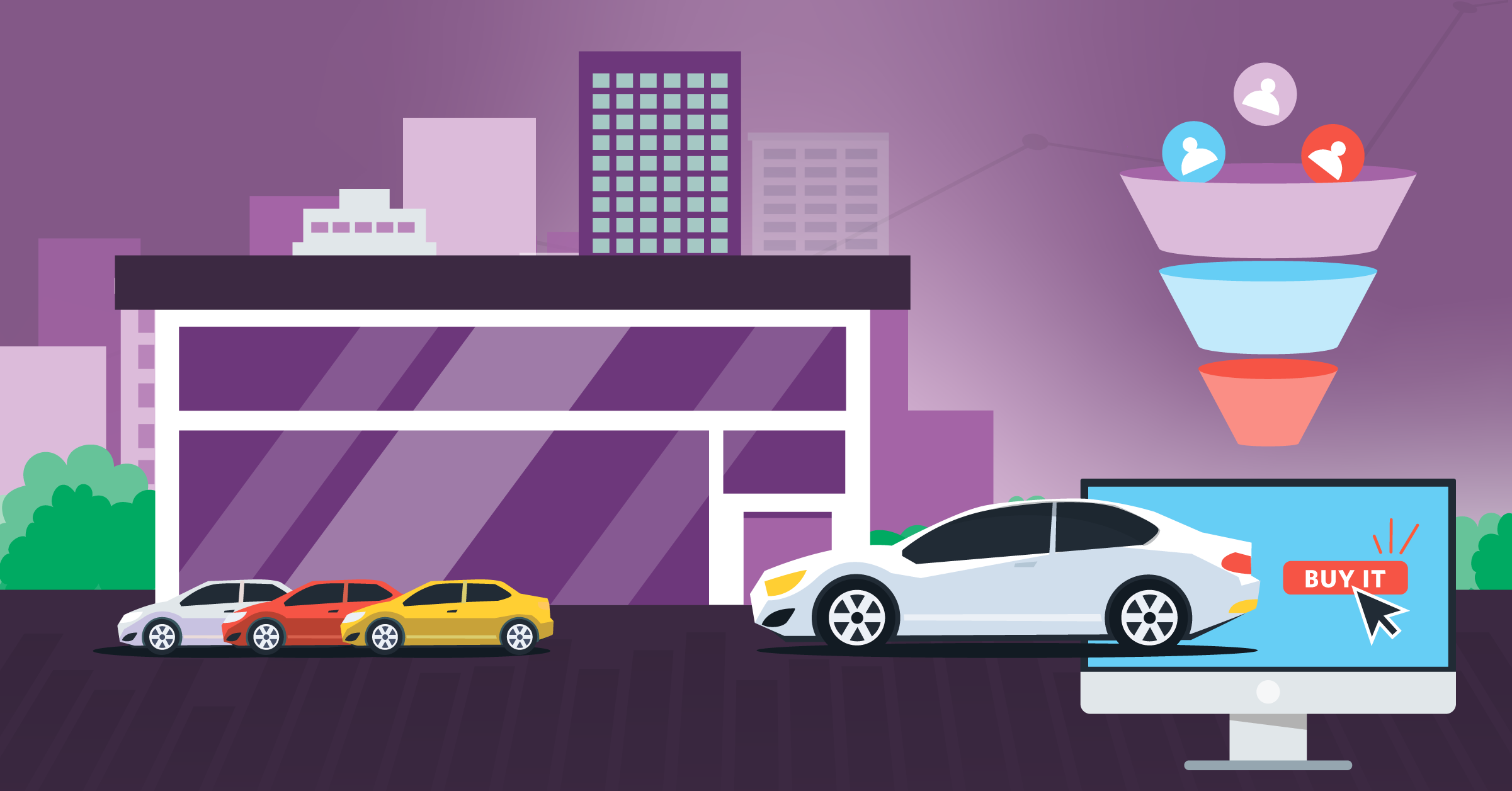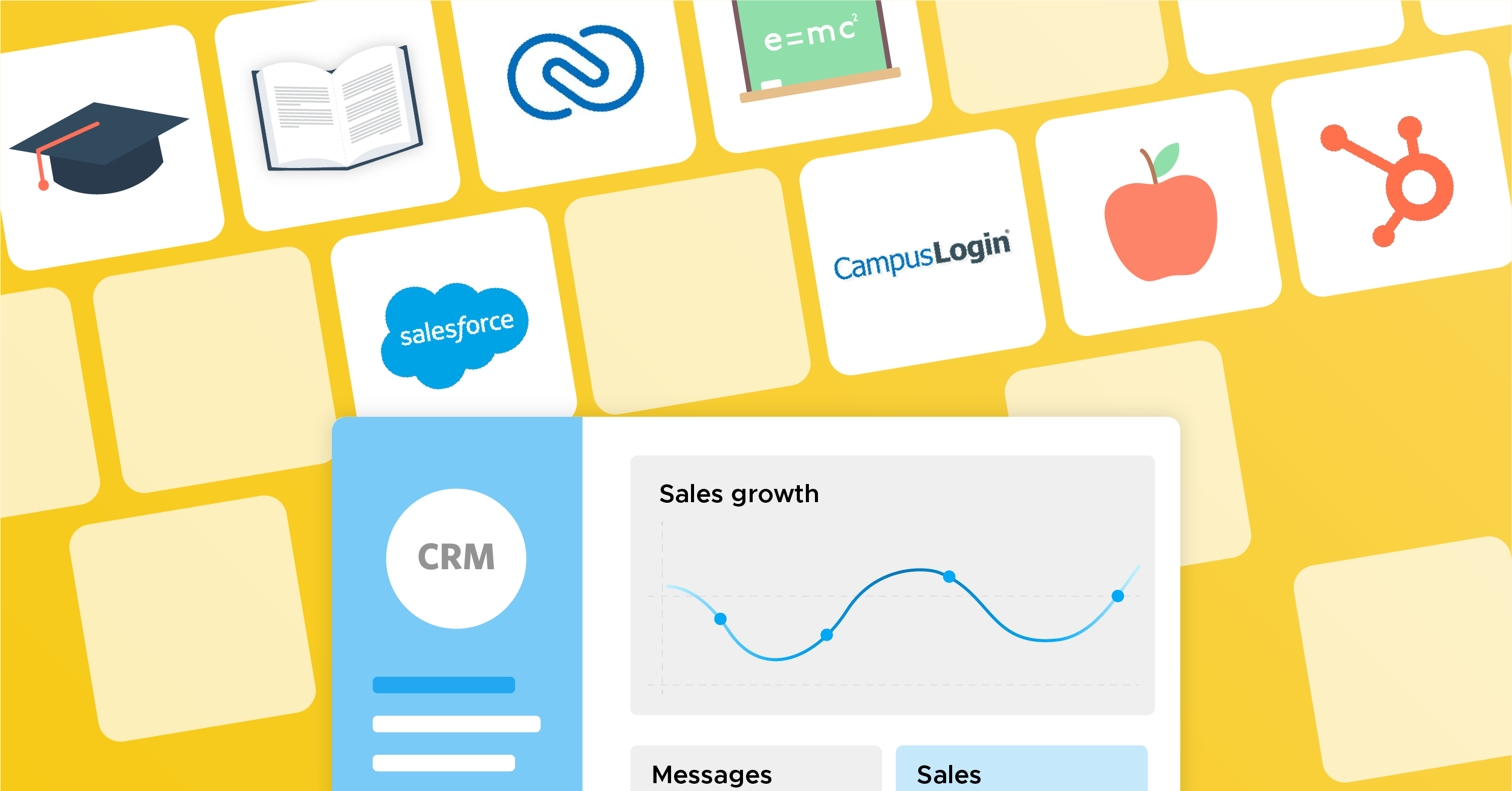
Car dealerships and salespeople have their hands full on a daily basis, with leads constantly coming and going.
Automotive lead management is a crucial part of their jobs. They need to constantly balance lead nurturing in order to get interested customers into the cars they’re looking for.
- What is automotive lead management?
- Understanding the automotive lead management process
- The distinct challenges of automotive lead management
- Analyzing your automotive lead management process
- 4 Tips to improve your automotive lead management & get more sales
- Tips for better car dealer lead management
- The 5 best automotive lead management systems
- Automotive lead management best practices
- Final thoughts
Having the right tools to manage automotive lead generation and some helpful best practices in your back pocket can be invaluable. That’s why this complete guide to auto lead management is designed to give you some insight into both.
What is automotive lead management?
Automotive lead management (also sometimes called “auto dealer lead management” or “car dealer lead management”) is the practice of tracking and nurturing all leads for a car dealership.
It’s common for individual salespeople to track their own car sales leads that they’ve interacted with, whether online or in-person for test-drives or during a car dealership event.
Many dealerships will have a single automotive lead management software tool. Also, they may automatically distribute new digital leads randomly to different team members, so everyone gets an equal number of potential clients.
Because car sales is a high-value, high-stakes profession, it’s essential to have a strong automotive lead management system that your entire team knows how to use to their benefit.
Understanding the automotive lead management process
Managing the leads you collect via digital platforms is quite different from traditional offline sales lead management. These leads come through channels like websites, social media, and email inquiries. Keeping in account their sources as well as the fast-paced environment they are used to, your response to them also needs to be quicker.
That’s probably the main reason you’ll require a faster, more automated approach. This way, you can meet your internet leads demand for quick responses and personalized communication right away.
Key features of the automotive internet lead management process
1. Speed and automation
With internet leads, timing is critical. Customers expect fast responses, and automation tools help dealerships instantly follow up with leads through emails or text messages.
2. Data tracking
Online lead management systems track customer interactions automatically, so sales teams can see what a lead is interested in before contacting them. This allows you to create more tailored conversations and potentially increase your conversion rates.
3. Personalization
Speaking of tailored conversations, internet lead management systems can segment leads and send personalized messages based on browsing history or specific inquiries. 75% of users expect personalized communication, and they mentioned that tailored messages make them more likely to become return customers.
4. Integration with CRM
You need to manage your leads. And the best way to do this is by seamlessly integrating them into CRM systems, where sales teams can track progress and analyze data. This ensures no lead is missed or forgotten.
While traditional lead management relies heavily on direct human interaction, automotive internet lead management processes leverage technology to respond quickly and keep your potential customers engaged.
Here are some of the most popular, automotive-specific integrations that help you do that.
The distinct challenges of automotive lead management
Car dealerships have some unique challenges when it comes to lead management and nurturing, and it’s important to consider each when tackling your lead management system.
These challenges include the following:
- Many potential buyers will actively reach out to multiple different dealerships during their buying process. I reached out to four different Honda dealerships when I purchased my first car to see who was willing to give me the best deal. This means you need to act quickly, build rapport and trust fast, and be ready to move as soon as the customer is.
- Dealerships may struggle with inventory. Dealerships deal with new and used vehicles, service parts, and products that improve the customer experience every day. To handle supply chain issues, they need to stay on top of your inventory management system. You must know your customers’ wants so that you can be aggressive once there’s something on the lot.
- Customers may only be purchasing once every five to ten years. I reluctantly traded in my first car after eight years because of the new safety features. Some people will trade cars in sooner, around the four-year mark, and others will drive them until the wheels fall off. Either way, you’re looking at one sale over an extremely long period of time. It’s harder to keep past customers as potential leads, so you need to find ways to create an ongoing relationship and drive referrals from past customers.
Analyzing your automotive lead management process
Identifying where gaps exist in your current lead management workflows help you strengthen your automotive lead management process. Also, this is the way you can build a more efficient path from lead generation to sale.
Here are a few key areas to focus on when evaluating your process:
1. Lead response time
The speed at which you respond to leads matters, especially for your online leads. Are your leads receiving follow-ups right after submitting their information? A delay in response can cause them to lose interest. Having automation integrations in place allows you to engage with potential customers, even during off-hours.
2. Lead qualification
Are you properly qualifying leads before passing them to sales?
Not all leads are ready to buy immediately, so effective lead scoring is important. Check whether your scoring system prioritizes high-quality leads. Always make sure that everyone on your team uses the same criteria for scoring.
3. Lead nurturing
Are you providing valuable, personalized content to keep them engaged? Look at how you nurture leads that aren’t ready to purchase yet. If your communication with these leads is generic or inconsistent, they may lose interest. Maintain a solid strategy for nurturing leads with targeted information that moves them closer to making a purchase.
Learn more about lead nurturing best practices here.
4. Sales hand-off
Are you handing over leads too early or too late? You’ll need to review how leads are passed from marketing to sales. Make sure that only highly qualified leads are sent to the sales team, and that the hand-off process is smooth. Your salespeople need to be equipped with the right information about the lead’s preferences and history.
5. Tracking and follow-up
Are you consistently tracking and following up on leads that have been passed to sales? If some leads lose interest, do you have a system in place to reassess and potentially send them back to marketing for further nurturing? Monitoring leads through every stage can help prevent them from slipping through the cracks.
4 Tips to improve your automotive lead management & get more sales
Want to get the most out of your car dealer lead management system? We strongly recommend implementing the four following best practices so that you can generate more sales successfully.
1. Capture all lead information upon first contact
You don’t want to wait for customers to come in for a second test-drive or to get in touch later for more information.
The second that you’ve got them, get their information right away. Many salespeople will do this when people come into the dealership before they even move on to test driving the car. Name, email, phone number, and qualifying information like plans for financing or which models are preferred can give you a ton to work with— and the ability to reach out later.

Digital car dealerships often take advantage of the lead generation coming in through online automotive marketing strategies. If you are doing the same, make sure that those lead forms are giving you the information that you need to work with. Also, ask qualifying questions right off the bat so you can get the data you need to best serve the customer.
2. Have a referral system in place
One of the best ways individual salespeople can generate more leads effectively is to get referrals from past satisfied customers.
I’ve referred three people to the salesperson who helped me with my first car, and they all purchased from him. I got $100 for each person who bought a car, and took each friend out to a nice dinner.
Make sure that your dealership has a referral system in place and that your sales team is reminding customers about it regularly. Everyone loves making some extra cash, and it’s a win-win for everyone involved.
3. Follow up to ask about ongoing preferences
While some customers may stroll in, see a model they like, and walk out with it the same day, that’s not the reality for most clients.
It takes an average of 200-245 days to complete the buying process. That’s a long period of time, so you’ll want to stay in touch to gauge a lead’s interest in new deals or prices, different models coming onto the market, and new financing options.

Follow up regularly. Make sure you note in the lead management software whether the customer prefers email or phone (and find out when you first gather their info). This is crucial to keep the customer engaged and increase the odds that you’ll be the one to get the sale.
4. Use a lead management system
The best way to manage your auto leads is really to use automotive lead management software.
This software is typically going to be a CRM-focused tool that works exceptionally well with (or even was designed for) car dealerships. You can enter information about what models the lead was looking for, such as what financing options they’re open to.
We’re going to take a look at the best options for this in the next section, but remember to take a look at a few and find one that will work for your dealership and your specific sales team.
Tips for better car dealer lead management
When it comes to optimizing your marketing on robust advertising platforms like Facebook, you should start with what matters most: your lead generation. Facebook lead ads provide a valuable opportunity for your agency’s dealer clients to engage with individuals who have already expressed interest in their vehicles or services.
As an automotive agency, you know how influential your lead generation is in your client’s success. Specifically, the steps you’re currently taking to make sure that your lead ads are effectively drawing in high-quality prospects.
Benefits of running Facebook lead ads for car dealers
With Facebook lead ads, car dealerships can transform their digital marketing strategies. This also means more efficient lead generation, better customer engagement, and increased sales.
Here are some of the top perks of running Facebook lead ads that offer several distinct advantages for car dealerships:
- Facebook’s vast user base enables dealerships to reach a broad audience.
- The platform offers sophisticated targeting options based on demographics, behaviors, and interests.
- Facebook’s robust analytics allow dealerships to track the performance of their ads in real-time.
- Dealerships can use Facebook to engage potential buyers across different channels and ensure that their messaging is consistent.
- The ability to integrate Facebook with their CRM or other marketing tools can help them continually engage, nurture, and follow up with leads.
How LeadsBridge integrations can help streamline automotive lead management
LeadsBridge integrations basically streamline the process of managing your leads for your dealership. For instance, it can connect your Facebook ads and your Customer Relationship Management (CRM) software. This allows you to automate and optimize the data transfer between the two platforms and put your lead data management processes on autopilot.
LeadsBridge can be especially valuable in the following areas:
Syncing your lead data automatically
It helps automatically sync new leads generated from Facebook lead ads directly into your dealership’s CRM system. This is a real-time data transfer that ensures that leads are immediately available for follow-up. And by cutting down the time between a lead expressing interest and your sales team reaching out, you can improve the chances of conversion.
Eliminating manual data entry
Automating the transfer of lead data to and from Facebook, LeadsBridge eliminates the need for manual data entry. This saves time and significantly reduces the likelihood of errors_ A problem that happens quite often when data is handled manually.
Improved lead segmentation and management
When all your leads are automatically fed into the CRM, you can better manage and segment them. These groups can be based on various criteria, like interest level, demographics, and interaction history. By setting up Facebook custom audiences and Conversions API integrations, you are also setting up a targeted strategy that allows for more personalized follow-up strategies and marketing campaigns.
More effective lead nurturing
A seamless flow of information can be used to nurture leads effectively. With detailed insights from and the CRM, your team can prepare tailored communications. This approach addresses the specific needs and interests of potential customers, and so helps improve conversion rates.
Satisfactory analytics and optimization
Integrating Facebook lead data with CRM systems allows for detailed analysis and reporting. As a dealership, you can track which ads are performing best, understand customer behaviors, and refine their advertising strategies based on concrete data.
After setting up your Facebook Conversions API integrations, you’ll have a continuous loop of feedback and adjustments that eventually help optimize advertising spend and improve ROI.
The 5 best automotive lead management systems
When it comes to automotive lead management software, we’ve got five recommendations that come from three types of tools.
Automotive lead management CRM tools
First, you’re going to want an automotive-friendly CRM. This allows you to track lead data like contact info and car preferences (and even notes like how many kids they have or if they love off-roading), and it makes it easy to see when you should follow up or where in the pipeline they are.
For these tools, we strongly recommend the following, each of which is fully functional CRMs tailor-made to help car dealerships track leads and drive sales:
VinSolutions
VinSolutions is one of the most popular automotive lead management systems on the market today.
This tool has outstanding features for data syncing, lead follow-up, pipeline tracking, and remarketing campaigns so that you can keep your audience engaged— and purchasing.
They’ve got great data visualization to help you understand how many customers are converting and where leads are in the sales process. They also have a feature designed to allow you to store sensitive user information in a secure way, like pictures of their driver’s license or car insurance.

LeadsBridge integrates with VinSolutions. See how to create a VinSolution CRM-Facebook integration here.
elead
elead comes with marketing, sales and communication-focused features all in one tool. You can use it to optimize the customer journey, follow up thoroughly, and identify potential sales opportunities.
This tool’s interface may look a tiny bit dated, but this tool has all the essential features many car dealerships need. You can schedule activities and assign them to yourself or different team members, including tasks like “phone follow-up.”
Check out all the available LeadsBridge’s elead integrations, or see how it works here.
DealerSocket
DealerSocket is next on our list. If you want to automate any of your workflows, this is an automotive lead management system you might want to consider. It’s got rave reviews, and it provides analyzed customer data to help you sell more.
DealerSocket offers inventory management, CRM, marketing, and digital retail features for an all-in-one tool. You can actually configure the platform to be exactly what your dealership needs, while getting strong insights that will help you convert more leads. Data storing is exceptional and secure, and you can streamline workflows across your entire team.
And one more important feature to note: They offer data mining features to connect with high-quality leads. See more here:

See more about our DealerSocket integration and how it works.
Want to know more? Discover our top 13 CRM solutions for your automotive business here.
ADF/XML Integrations
Next, you’re going to want to have an integration set up with your CRM or tool of choice to sync with the ADF/XML. This is the industry standard for sharing lead information for auto-dealers, allowing you to sync data across multiple tools.
Did you know the FTC Safeguards Rule mandates automotive dealerships to protect customer data if they provide financing? Learn more about FTC car dealerships’ new lead generation rules here.
Here at LeadsBridge, we offer integrations for ADF/XML and other tools of your choice. See how it works here.
Automation-focused integration software
And finally, we strongly recommend that all auto dealerships use automation-focused integration software for their lead management system. Here at LeadsBridge, we offer integrations for most major auto dealer tools, including everything we’ve discussed so far in this post.
No matter which tools you choose, LeadsBridge can help. We’ll sync new lead data to your CRM right away, so a lead is never missed, and keep your data updated across multiple tools (including your email and remarketing platforms).
Take a look at our automotive integrations.
Automotive lead management best practices
It’s no secret that with the right strategy, automotive dealerships can improve their lead management processes. This ensures higher quality leads and, ultimately, increases sales conversions. Here are some pointers you might want to consider:
Touch up your lead generation forms
Strategy-focused lead generation forms help collect high-quality leads. Offer valuable resources in exchange for contact details, and use only targeted questions to better qualify leads before they enter your CRM.
Engage niche audiences
You can also take advantage of niche communities on platforms like Facebook. Participate in discussions and establish yourself as an expert. This is a proven practice that attracts high-intent leads.
Use paid ads
Balancing the quantity and quality of leads with well-targeted paid ads is another great tactic. You can use platform-specific features like Facebook’s Automotive Inventory Ads to target in-market buyers effectively.
Here’s your complete guide to paid advertising funnels.
Use videos for lead-capturing
Detailed product videos that address customer pain points and showcase important features are considered high-performing content for dealerships. All you have to do is to attach lead generation forms to these videos to capture interested leads easily.
Incorporate chat AI
Advanced chat AI tools can provide real-time assistance for users. It could also guide potential customers to relevant resources. Integrating your lead forms with chatbots can help improve both your lead generation quality as well as your brand image.
Implement an automated lead management system
Setting up an automatic lead management system helps you manage your leads as they come in, segment them, and nurture them effectively. LeadsBridge helps you do all that while also streamlining the qualification process and retargeting lost leads.
Final thoughts
Automotive lead management can be complex and challenging, but having the right tools and strategies in place can go a long way. The tips discussed above can go a long way, and the automotive lead management software reviewed can be a game-changer for your dealership.
Want to learn more about how LeadsBridge can help you get the most out of your automotive lead management software? Check out our automotive solutions here.

























